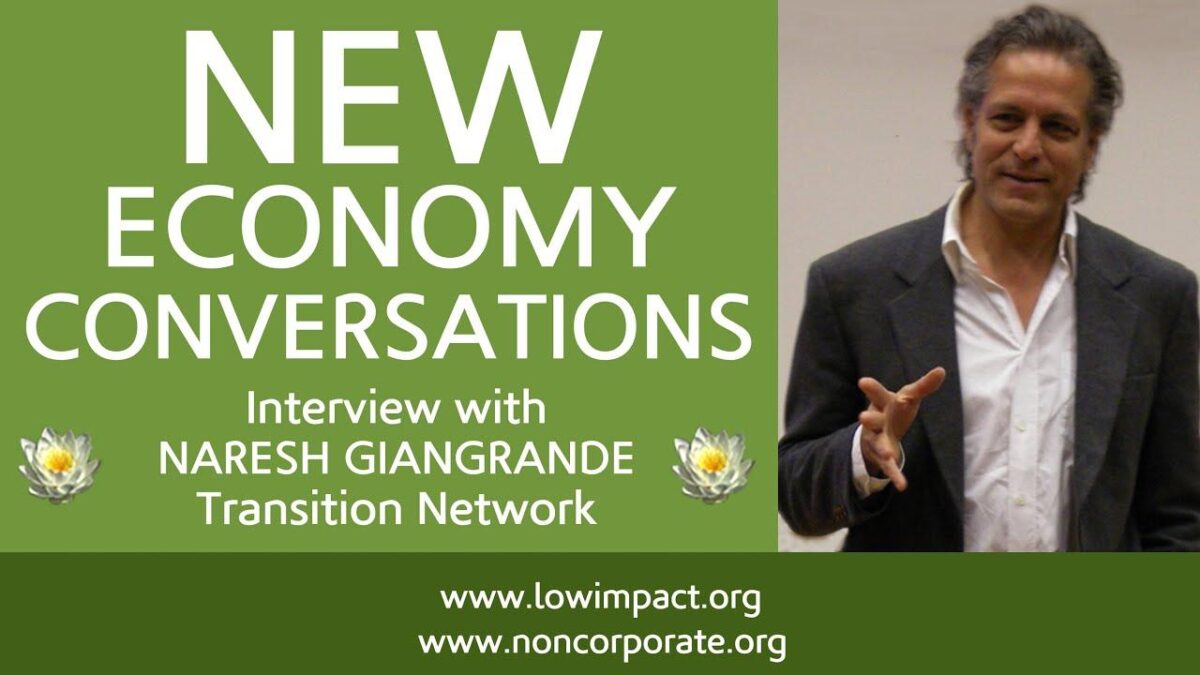with Naresh Giangrande, cofounder of the Transition Network
Highlights:
1. There has been a lot of capture of governments’ regulatory environments around the world by multinational corporations. The result is that they’re getting subsidised. The one that gets the headlines is fossil fuel production. Fossil fuel corps are subsidised to the tune of over 5 trillion dollars per year. Small, locally-based groups can’t really compete with that effectively.
2. The idea that we’re going to relocalise all that seems far-fetched – particularly if people want to use the kind of tech that we’re using right now. If we were happy to go back to the level of simplicity where we could make just about everything locally, that would be one thing – but it seems that very few people would be willing to do that – as yet. As the current crisis develops, maybe more people would be willing to do it or forced to do it.
3. Early adopters – people who can see what’s coming – are at the head of a wave. They can see the absolute need to get things in place to deal with what’s coming. Take the coronavirus – I don’t think it’s an existential threat to the human race, but it could cause some big disruption. So what do we do – let’s start talking to each other for a start. Let’s ask if we have a plan if things get bad. Transition has been advocating these things.
